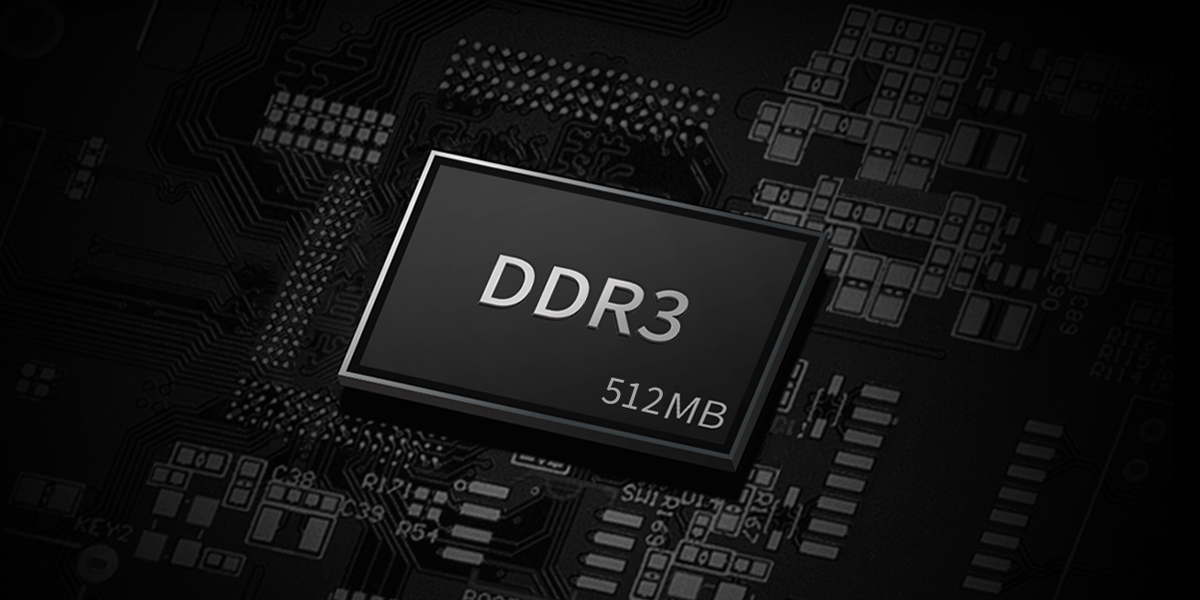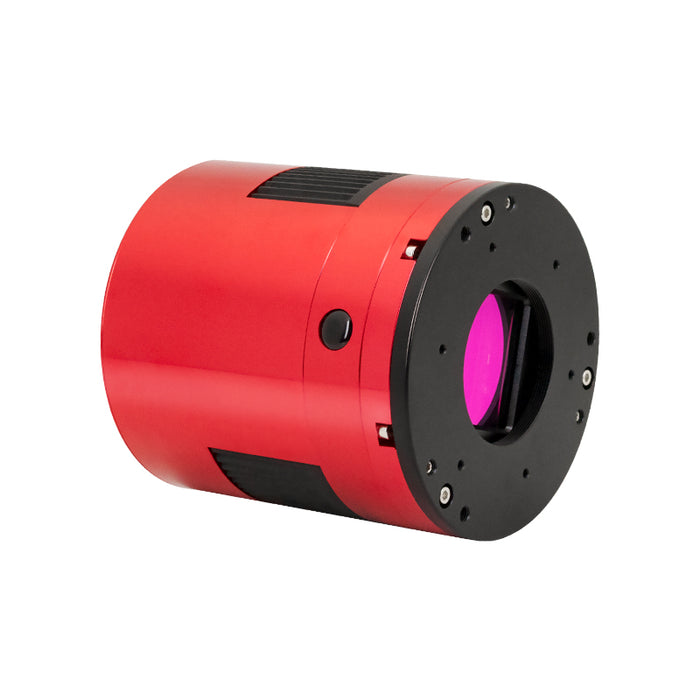
 Out of Stock:
Out of Stock:
This product will not ship immediately. Contact us for estimated delivery.

 Out of Stock:
Out of Stock:
This product will not ship immediately. Contact us for estimated delivery.
All Pro cameras (with cooler) need to be connected to an external 11-14v power supply to image. You can also use ASIAIR to power the cameras. Even when the cooler is not being used the power supply must be used for the camera to be recognized.
ASI2600MC Pro uses Sony’s latest back-illuminated IMX571 APS-C format sensor with a native 16-bit ADC. It is the color version of the ASI2600MM Pro. It has an impressive range of features that make it a popular choice for astrophotographer. Here are some of the reasons why:
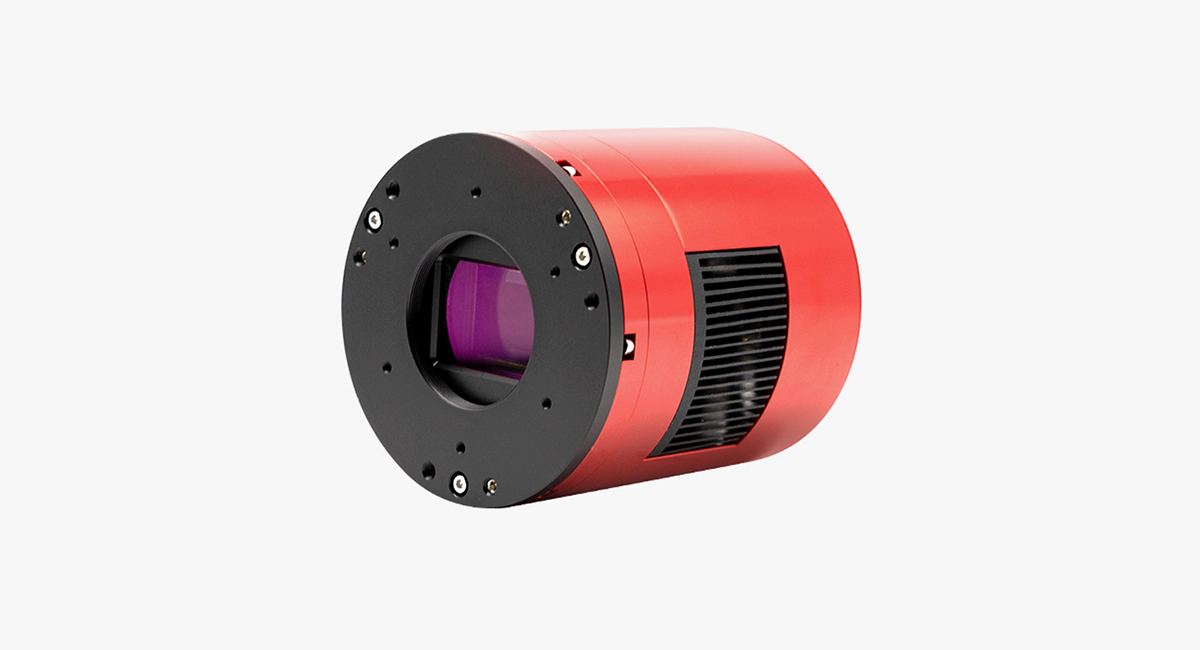
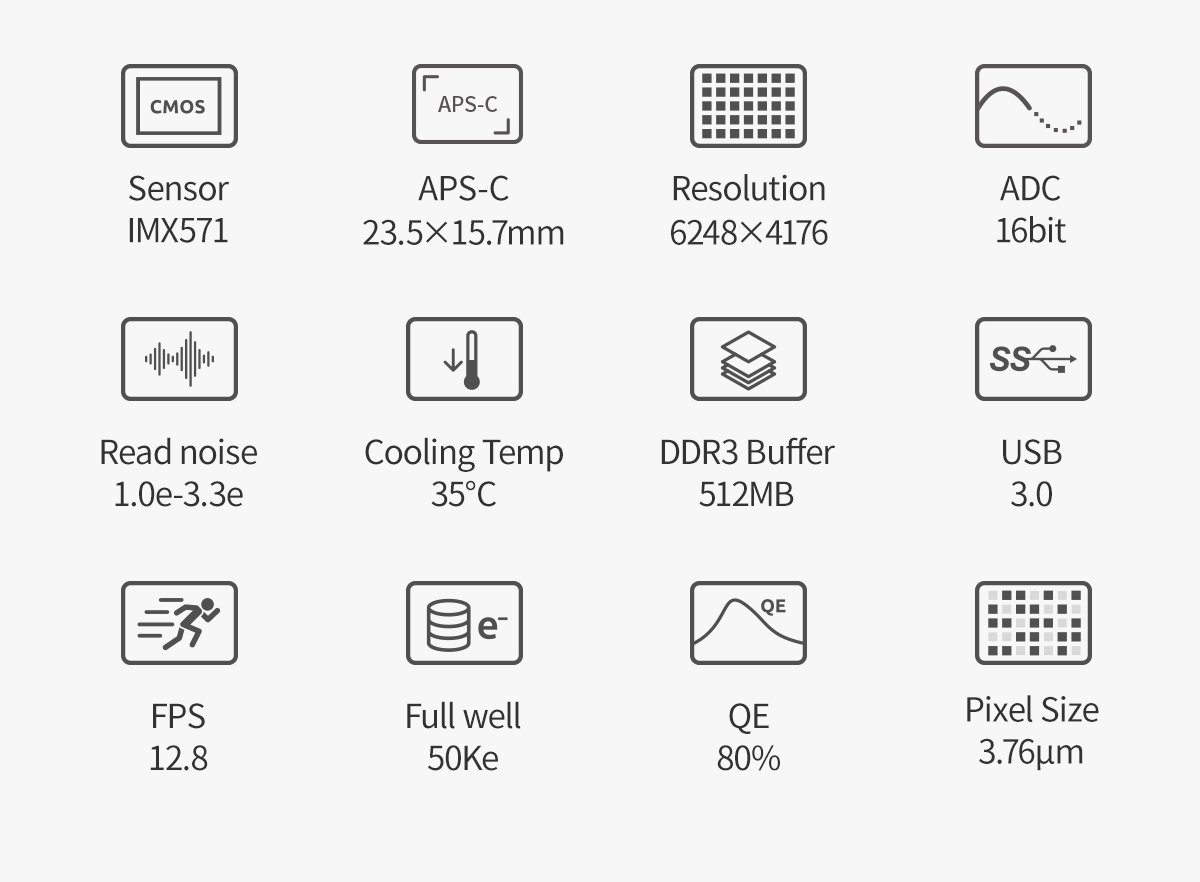
We have been working hard to reduce the weight of the camera while improving the performance of the camera. After years of technical accumulation and repeated weight loss experiments by ZWO engineers, ZWO finally concentrated the ASI2600 to 0.7KG.
This is a 26MP camera featuring a small pixel size of 3.76um yet also having the incredible ability of accommodating a large well depth of 50ke.
The sensor length and width are 23.5mm * 15.7mm. The diagonal is 28.3mm.

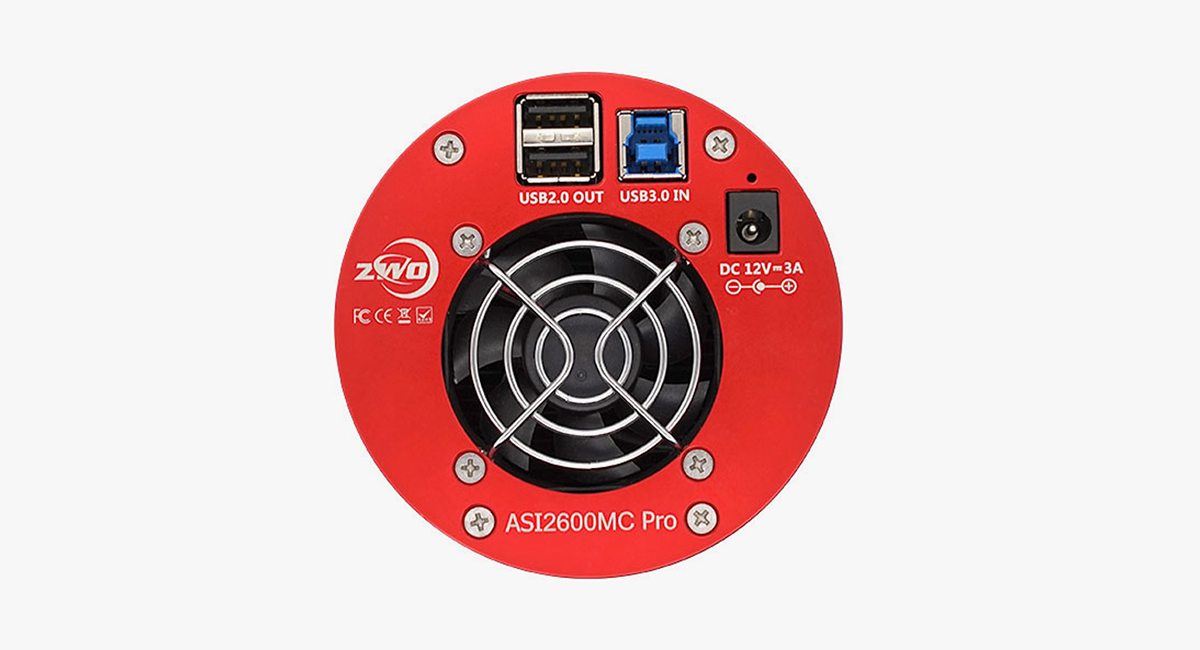

As one of the few CMOS astronomy cameras with 16-bit ADC on the market, ASI2600 Pro camera was conceived having in mind the optimal characteristics for astrophotography. This 16bit ADC is not a CCD 16bit ADC. It can really achieve a dynamic range output of 14 stop, which will significantly improve the image sharpness and contrast, and also create smoother and more natural contrast transitions (as well as color gradients when using different types of filters).

Sony’s back-illuminated CMOS image sensor improves the sensitivity and noise reduction – the key factors to enhancing image quality. It does this by radically realigning the fundamental pixel structure from front-illumination to back-illumination, while still retaining the advantages of CMOS image sensors such as low power consumption and high-speed operation.
With a conventional front-illumination structure, the metal wiring and transistors on the surface of the silicon substrate that form the sensor’s light-sensitive area (photo-diode), impede photon-gathering carried out by the on-chip lens. A back-illuminated structure minimizes the degradation of sensitivity to the optical angle response, while also increasing the amount of light that enters each pixel due to the lack of obstacles such as metal wiring and transistors. These components have been moved to the back-side of the silicon substrate.
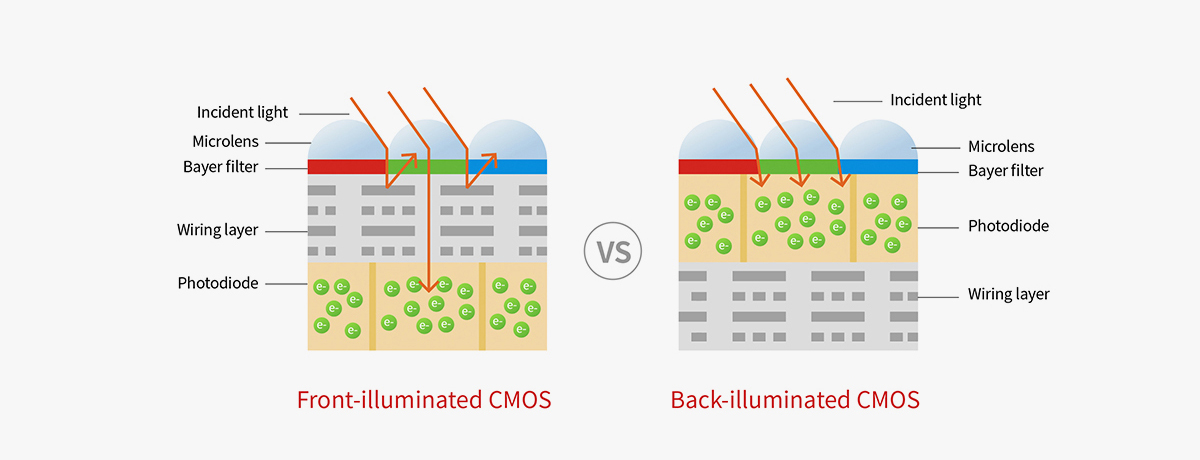
The ASI2600 Pro boasts excellent performance with a dynamic range of up to 14 stops. When the gain value is set to 100, the HCG high gain mode is turned on. We’re not saying it’s magic…but we’d like to think it is pretty close. With the HCG-mode turned on, the readout noise is greatly reduced, and the dynamic range is basically unchanged. To improve the data quality, it is recommended to set the gain to 0 or gain 100 during deep-sky imaging.

Traditional CMOS sensors produce a weak infrared light source during operation quite often seen in the corner of uncalibrated images. It is the tell-tale signs of ‘amp glow’. As the ASI2600MM Pro uses zero amp glow circuitry, you won’t have to worry about amp glow even when using high gain, long exposure imaging.


There is a polyimide heater completely fitting the protective window in the ASI2600 Pro camera. It can help avoid any potential annoying dew or icing issues depending on the environment in which you capture images.
The power of the heater is around 5W. You are free to turn it off anytime in your photography software if you want to save power.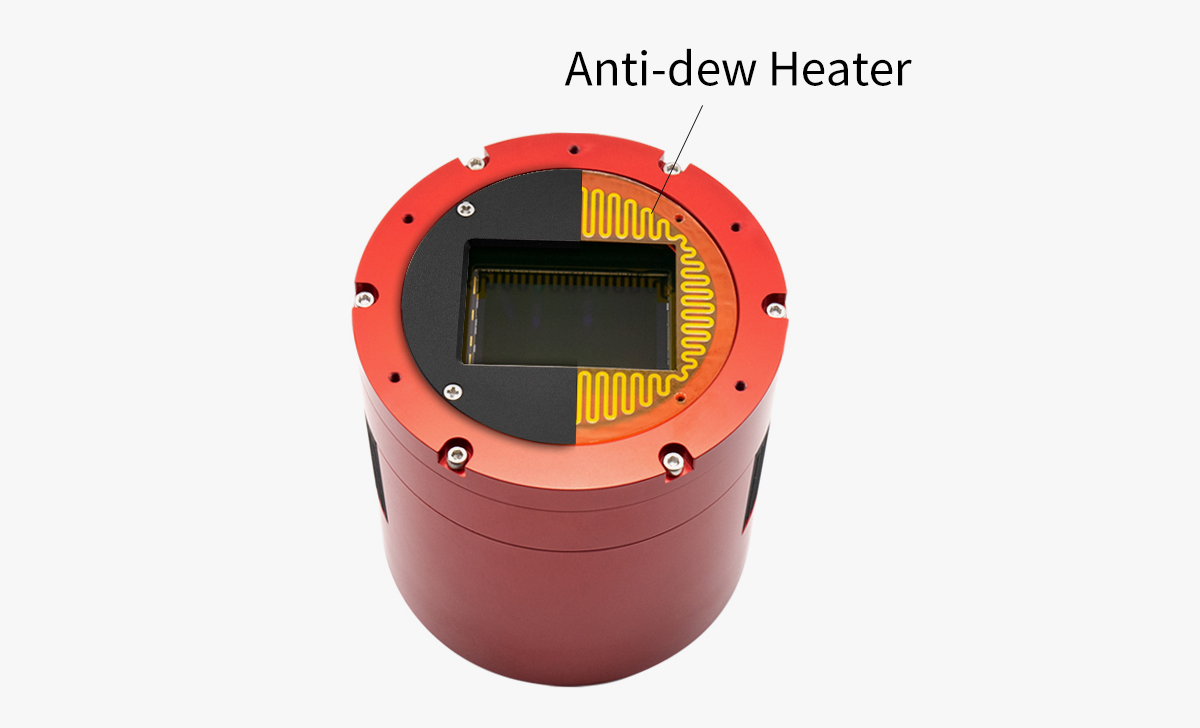
We suppose that the QE peak value of the ASI2600MC Pro is above 80%.
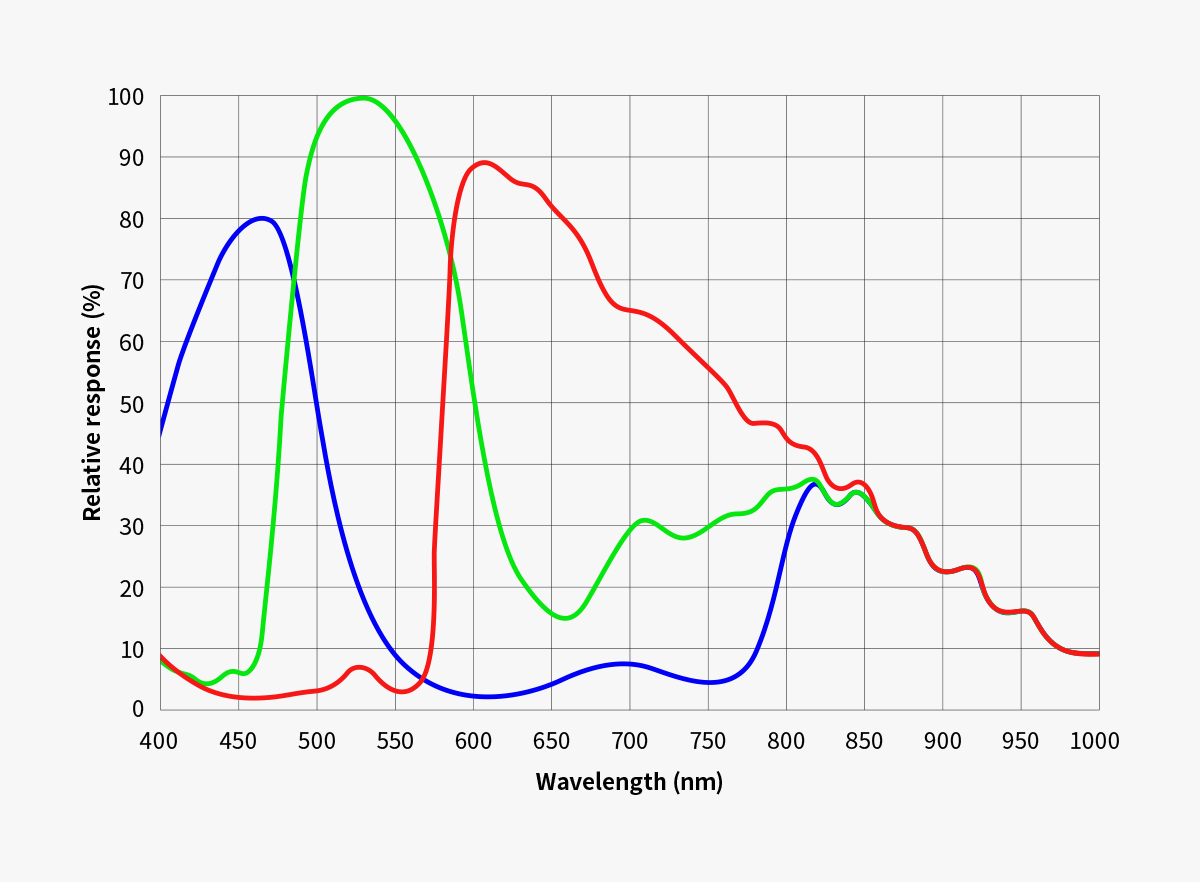
According to the test results of Sony, the QE peak value of the ASI2600MM Pro is 91%.
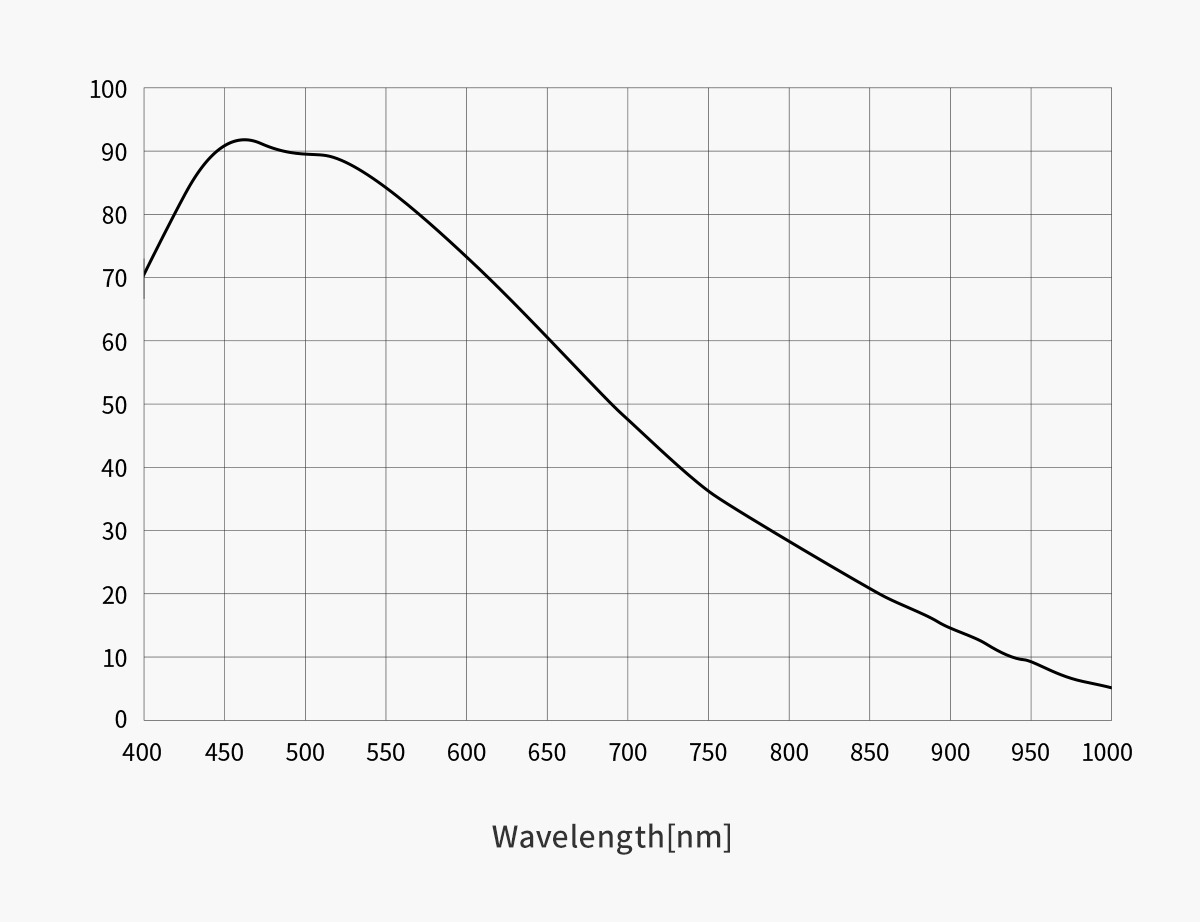
Thanks to the two stage TEC cooling, ASI2600MM Pro can lower the CMOS sensor temperature to more than 35 degrees Celsius below ambient temperature, which can greatly reduce dark current generation and sensor noise even during extended exposure times.
*The Delta T 35℃ is tested at 30℃ ambient temperature. It might get down when the cooling system is working for a long time. Also, as the ambient temperature falls, the Delta T would also decrease.
The unique dark current suppression technology can further reduce dark current noise. At a cooling temperature of 0 °C, the dark current noise is only 0.0022e/s/pixel. This means a 300s exposure will only cause 0.7e dark current noise, which is less than the readout noise. While at a cooling temperature of -20 °, the dark current can even reduce to 0.00012e/s/pixel, which is completely negligible!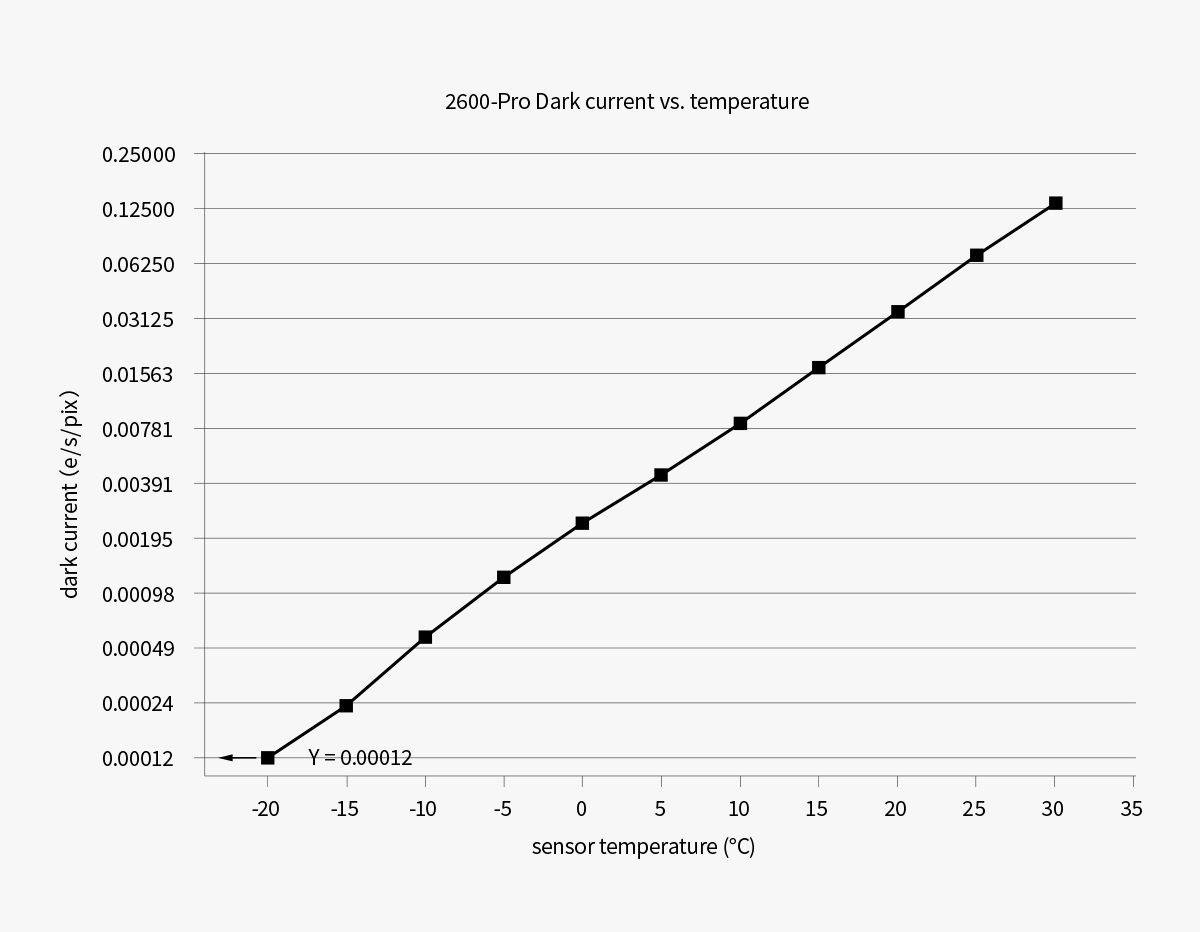
Please notice that the camera needs to be connected to an external 11-14v power supply to implement the cooling function. We recommend you use 12V@3A DC adapter (5.5*2.1mm, center pole positive) or lithium battery with 11-14V to power the camera. If you don’t have one, please click here to buy a 12V power adapter. There are 4 different standard for different countries, please make sure you selected the correct adapter when placing the order.
The ASI2600MM Pro is equipped with a USB 3.0 transmission interface and a built-in DDR3 cache to ensure stable and secure data transmission.
ASI Cooled Cameras produced after August 2023 have changed their DDR3 buffer from 256MB to 512MB.
